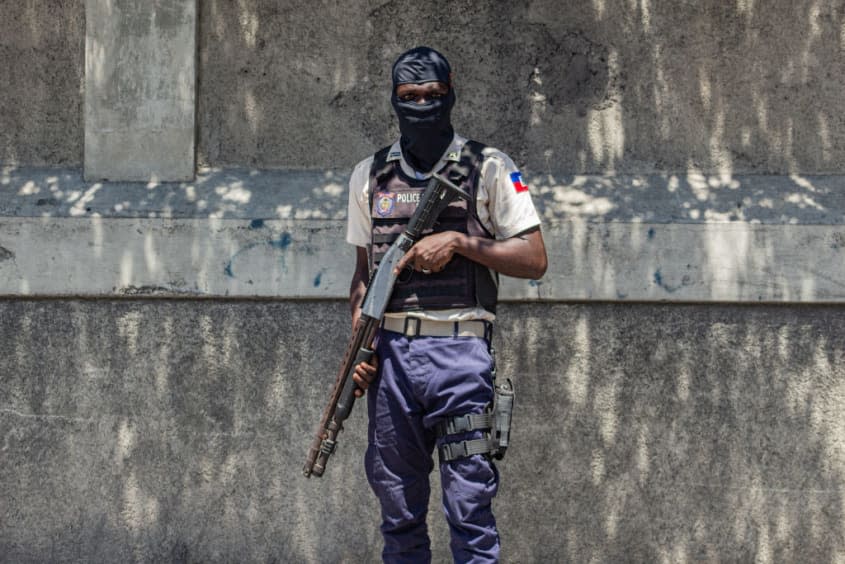Vigilante groups in Haiti targeting suspected gang members

In and around Haiti's capital, Port-au-Prince, vigilante killings are on the rise as residents take up arms against the gangs that control up to 80 percent of the city.
At least 18 suspected gang members have been killed in the past week by crowds in the Port-au-Prince area, The Associated Press reports, and on Tuesday, five men were killed and their bodies later set on fire. Human rights activist Vélina Élysée Charlier told The Guardian she has walked by smoldering corpses on sidewalks and witnessed men with machetes chasing suspected gang members down the street. "I've seen enough dead people for many lifetimes," she said.
In March, Haiti saw its highest number of reported murders, rapes, kidnappings, and lynchings since 2005, The Guardian reports, and the violence ramped up on April 24 when a gang tried to take control of the Turgeau area of Port-au-Prince. "What they didn't count on was the population striking back," Charlier said. Civilians armed with handguns and knives took to the streets, forming self-defense brigades. At least 13 suspected gang members in the Canapé-Vert neighborhood were beaten, stoned to death, and then burned. One vigilante told AP that residents "are planning to fight and keep our neighborhood clean of these savages."
After years of government corruption and gang violence, the current situation is not surprising, Daniel Foote, former U.S. special envoy to Haiti, told The Guardian. "At some point I thought they were going to start to take matters into their own hands because they've got no choice," he said. "The Haitians, like anybody, can only take so much. The gangs have stolen their lives from them."
You may also like
Stanley Tucci reflects on his 'terrifying' oral cancer battle

 Yahoo Sports
Yahoo Sports